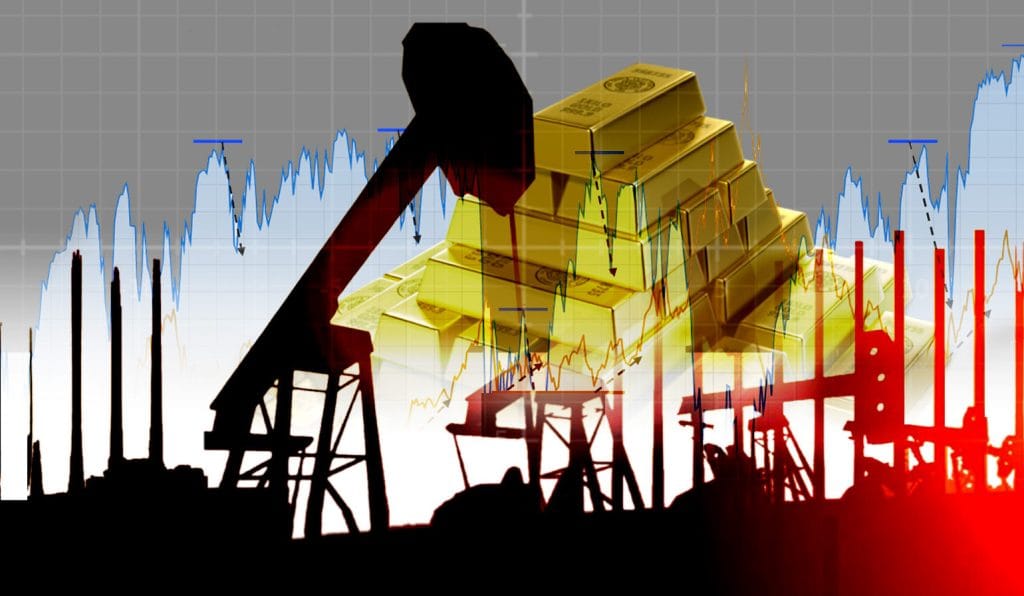Africa is experiencing a complex economic shift, as fluctuating global commodity prices bring mixed fortunes to countries across the continent. While soaring gold prices offer an unexpected lifeline for some, plummeting oil values are putting pressure on major exporters. This comes as Africa grapples with the consequences of U.S. trade tensions and the suspension of U.S. aid under President Donald Trump’s administration.
Oil-exporting nations such as Nigeria and Angola are feeling the strain of a significant drop in Brent crude, which has fallen below $67 per barrel, down from around $75 at the start of the month. These countries, whose economies depend heavily on oil revenues, face an increased risk of budget shortfalls as they prepare for the economic ripple effects of the price decline.
Meanwhile, countries that rely on importing oil, particularly South Africa, are seeing a potential reduction in energy costs. The decline in oil prices offers some reprieve, potentially easing inflationary pressures and providing breathing space for monetary policy.
However, a bright spot has emerged for gold-exporting nations, with prices surging past $3,500 per ounce, spurred by global uncertainties and investor concerns over the future of the U.S. Federal Reserve. Ghana, Africa’s largest gold exporter, stands to benefit significantly from the rising price of bullion, with increased foreign earnings helping to stabilize its economy.
“Gold strong, oil weak looks very pretty for South Africa,” said Nicky Weimar, chief economist at Nedbank in Johannesburg. She explained that while South Africa’s earnings from gold have diminished in recent years, lower energy costs could provide relief. However, the country’s other key exports, including platinum and coal, have also been impacted by global economic slowdown, affecting their overall revenue.
At 3:30 p.m. on 22nd April, the South African rand strengthened by 0.8/percent, trading at 18.58 against the U.S. dollar. The South African Reserve Bank held its benchmark interest rate at 7.5/percent, despite inflation staying near the lower end of its 3/percent to 6/percent target range. The continued uncertainty in global markets has led the central bank to exercise caution in its policy decisions.
For Ghana, the gold price rally comes at a critical time. With inflation hovering around 23/percent and ongoing debt restructuring following its 2022 default, the surge in gold prices could provide a much-needed boost to investor confidence. Samir Gadio, head of Africa strategy at Standard Chartered, noted that the increase in gold prices could support Ghana’s external bonds and help stabilize the cedi, the country’s national currency.
Reflecting the optimism in Ghana’s financial markets, the country’s 2035 Eurobonds saw a slight rise, reaching 65.43 cents on the dollar by 12:51 p.m. in London.
The broader African bond market, however, remains under pressure. The global retreat from riskier assets, spurred by Trump’s tariffs, has hurt investor sentiment toward African Eurobonds. Coupled with the freeze in U.S. aid, African nations are facing tighter access to global credit markets. Despite these challenges, the sustained rise in gold prices offers a potential lifeline for countries like Ghana, which are looking to reduce their dependence on foreign financing.
“Higher gold prices are helping countries like Ghana and other gold-exporting nations in frontier markets to rely less on foreign financing,” said Mark Bohlund, senior credit analyst at REDD Intelligence. Additionally, the reduced pressure on foreign reserves from falling oil prices may allow countries like South Africa and Kenya to bolster their financial positions, providing further opportunities for economic stability.
As global trade dynamics continue to shift, Africa’s exposure to both oil and gold is reshaping its economic outlook. For gold-exporting countries, the ongoing commodity rally may offer a much-needed boost, while oil-importing nations have room to benefit from cheaper energy costs. As the continent navigates these turbulent times, the evolving economic landscape highlights both the challenges and opportunities that lie ahead.



